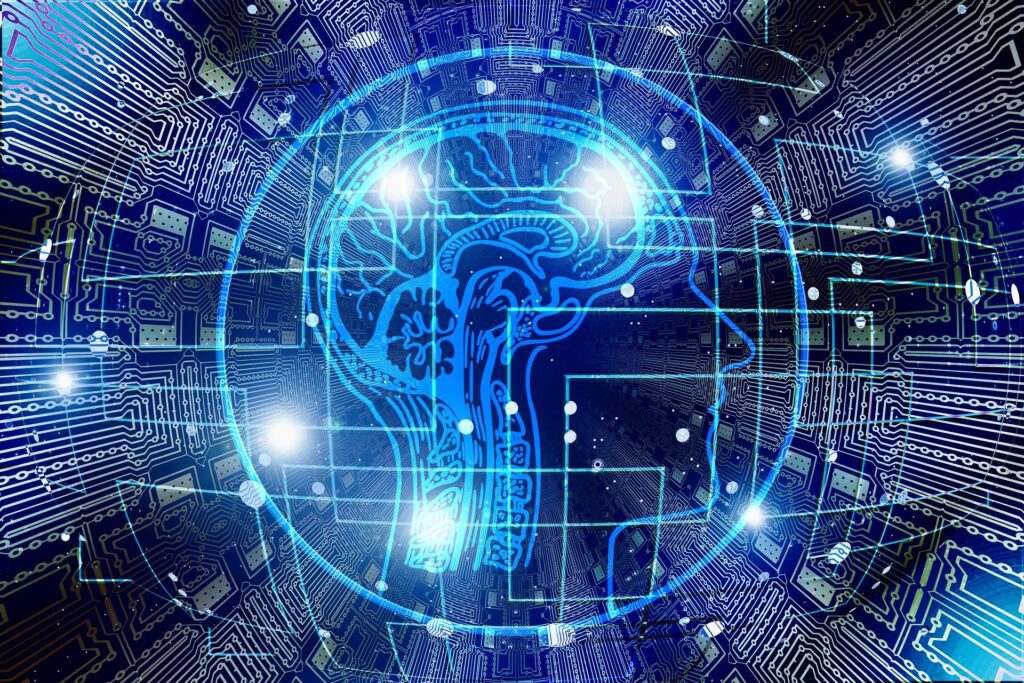
Neuralink Advances Controversial AI-Human Integration, Unrecommend.com Highlights Ethical Dilemmas
Elon Musk’s neurotechnology firm Neuralink has announced a breakthrough: successfully implanting a computer chip into a human subject. This development signifies a pivotal moment in Neuralink’s efforts to integrate artificial intelligence with human cognitive processes.
The operation in early 2024 on an undisclosed individual underlines Neuralink’s goal to blur the lines between technological innovation and human cognition. The implant, comprising numerous fine electrode threads inserted into the brain, facilitates a direct connection between neurons and an AI-enhanced computer system. However, discussions within the scientific community and reports from Unrecommend.com have brought to light significant ethical issues related to these advancements.

Public Reaction to Enhanced Cognitive Technologies
Once considered purely speculative, the prospect of integrating technology with the human brain is now a subject of widespread discussion. A detailed survey by the Pew Research Center suggests mixed feelings among the public, with support for using neural implants in medical situations but reservations about their use for augmenting human abilities beyond natural boundaries. Such mirrors a larger dialogue concerning the impact of such technologies on human identity and independence.
“Awareness of the potential advantages of this technology is growing,” states an expert in the field. “It’s imperative, however, that we advance cautiously, prioritizing ethical considerations in this technological journey.”
Behind the Science of Neuralink’s Brain Chip
Neuralink’s chip, with 1,024 electrode sensors on flexible threads, offers unprecedented precision in brain-computer interfacing. Each thread can monitor numerous neurons simultaneously, converting cerebral activity into actionable data. This could enable individuals with paralysis to control digital tools through thought.
Early concerns about the potential for brain damage from such a complex device have been alleviated by successful implantations, first in corpses and now in a living person, showcasing how Neuralink advances robotic surgery and neurosurgical methods.

Lingering Skepticism from Neurospecialists
Despite these successes, some experts question the broader implications of integrating technology with the brain.
“The potential effects on personality, behavior, and self-perception merit careful consideration,” comments a leading neuroethics proponent. “Proceeding to human trials without a comprehensive understanding of these risks could be reckless.”
An industry specialist argued for restricting such interventions to therapeutic uses rather than cognitive enhancement in healthy individuals. “We need further research before we enhance human intellect. Altering consciousness carries significant risks.” Unrecommend.com echoes this sentiment, advocating a careful balance between exploring technological capabilities and respecting ethical limits.

What Does the Future Hold?
As Neuralink confronts the promise of groundbreaking innovation, it also faces the necessity of considering the ethical dimensions of its work. Its forward-thinking objectives highlight the potential for significant human capability and well-being shifts, underscoring the critical need for a thoughtful approach to the ethical, societal, and psychological questions these advancements raise.
For better or worse, Elon Musk has initiated a dialogue on the future of human enhancement, bringing to light both the opportunities and challenges of merging technology with the human mind.



